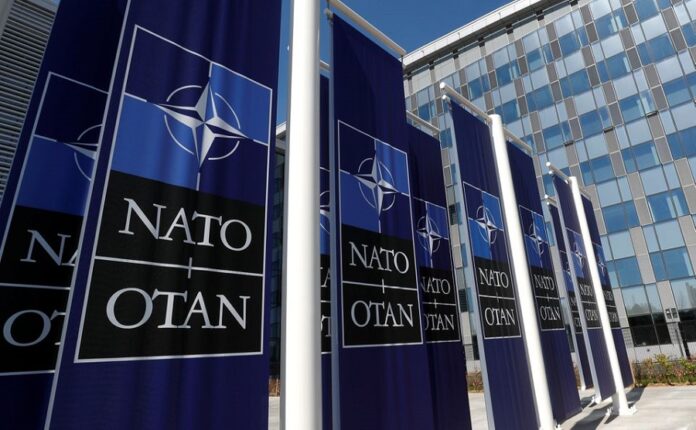NATO should play a bigger role in security in the Black Sea, and integrate Ukraine’s air and missile defences with those of alliance allies, Ukrainian Foreign Minister Dmitro Kuleba said on Thursday, according to Reuters.
“The Black Sea is instrumental for making the whole of Europe peaceful and future-oriented,” Ukraine’s Foreign Minister Dmitro Kuleba, speaking via video link, told a Black Sea security conference in the Romanian capital Bucharest.
“Sadly, it is also a showcase of how rapidly things can deteriorate if one neglects threats. It’s time to turn Black Sea into what the Baltic Sea has become, a sea of NATO.”
The remarks were brushed aside in Moscow, where Kremlin spokesman Dmitry Peskov told a briefing: “The Black Sea can never be a NATO sea.”
“This is a shared sea, it must be a sea of cooperation, interaction and security for all its littoral states. And this security is indivisible.”
The Black Sea and its Ukrainian coast have been crucial theatres of war since Russia’s invasion of Ukraine last year. Both Moscow and Kyiv rely on the sea for trade including supplying grain markets as two of the world’s biggest food exporters. A Russian blockade threatened to cause a global food crisis last year until the United Nations and Turkey brokered an agreement to keep ports open, still the focus of diplomacy.
“We need to address the common Russia problem together. For instance, I support the expert idea to integrate the air and missile defence systems of Ukraine with the ones of the Black and Baltic Sea NATO allies,” said Kuleba.
Russia’s Black Sea fleet is based in Crimea, the Ukrainian peninsula Moscow seized and annexed in 2014, and capturing Ukraine’s ports has been a major Russian objective. Since last year’s invasion, Moscow has seized the entire coast of the Sea of Azov that opens into the Black Sea, but its advance along the Black Sea coast was halted about 130 km east of Ukraine’s main port Odesa.
Kyiv has no comparable navy, but the impact of Russia’s superiority at sea has been blunted since Ukraine sank Russia’s flagship cruiser Moskva a year ago and recaptured Snake Island, a rocky outcrop near sea lanes to Odesa.
In the north of Europe, the security map around the Baltic Sea has been redrawn in the past year by Finland and Sweden’s decision to apply to join NATO, leaving Russia soon to be the only coastal country outside the Western military alliance.
Applications by Ukraine and Georgia to join would have the same impact on the Black Sea, where Bulgaria, Romania and Turkey are already members.
Kuleba said an upcoming NATO summit in Vilnius was an opportunity to move forward on Ukraine’s long-sought NATO membership “to show that the door is not only open but that there is a clear plan on when and how Ukraine will enter it.”


